 As the year winds down, we’re going to be subjected to many countdowns, trying to help us put 2022 into perspective. We love to see our world in a certain order, so we know what goes where.
As the year winds down, we’re going to be subjected to many countdowns, trying to help us put 2022 into perspective. We love to see our world in a certain order, so we know what goes where.
With all respect to the Kasemnomics of ranking films, albums, spectacular sports moments, and everything else, this sorting out process doesn’t tell us what we really need to know:
How we’ve changed over the past 12 months – how our habits, beliefs, and views were impacted by the events that rocked our world.
That’s why a new Pew Research Center article from Katherine Schaeffer is so fascinating and revealing. It’s the research version of a greatest hits compilation, reviewing the year in data. I believe every news organization’s journalists and reporters should give it a read. So should morning show hosts, producers and programmers.
It is loaded with revelations about us as people – data that is eye-opening, surprising, and rich with the ability to stimulate conversation, whether on the air, online, or on social.

Radio broadcasters that take the time to think through these insights and consider their implications will be rewarded with rich material to start the new year.
Aptly called “Striking findings from 2022,” Schaeffer presents 15 public opinion trends guaranteed to amaze, amuse, and surprise, born out of events of the year: the lingering effects of COVID, the Russian invasion of Ukraine, the Supreme Court overturning Roe v. Wade, and an economy that consistently confounded the experts.
They include fresh revelations that include the fact Americans are barely using cash for purchases or (one that I covered earlier this year) that more and more adults are using TikTok for news.
using cash for purchases or (one that I covered earlier this year) that more and more adults are using TikTok for news.
Others tell us that since Russia invaded Ukraine, Americans are more apt to think of Putin and his country as the enemy. Or try this one on: U.S. journalists are more apt than the public to believe both sides don’t always merit equal news coverage.
As a researcher, I find hem all fascinating. But I picked out three of them to share with you that are worth considering and amplifying. Here they are:
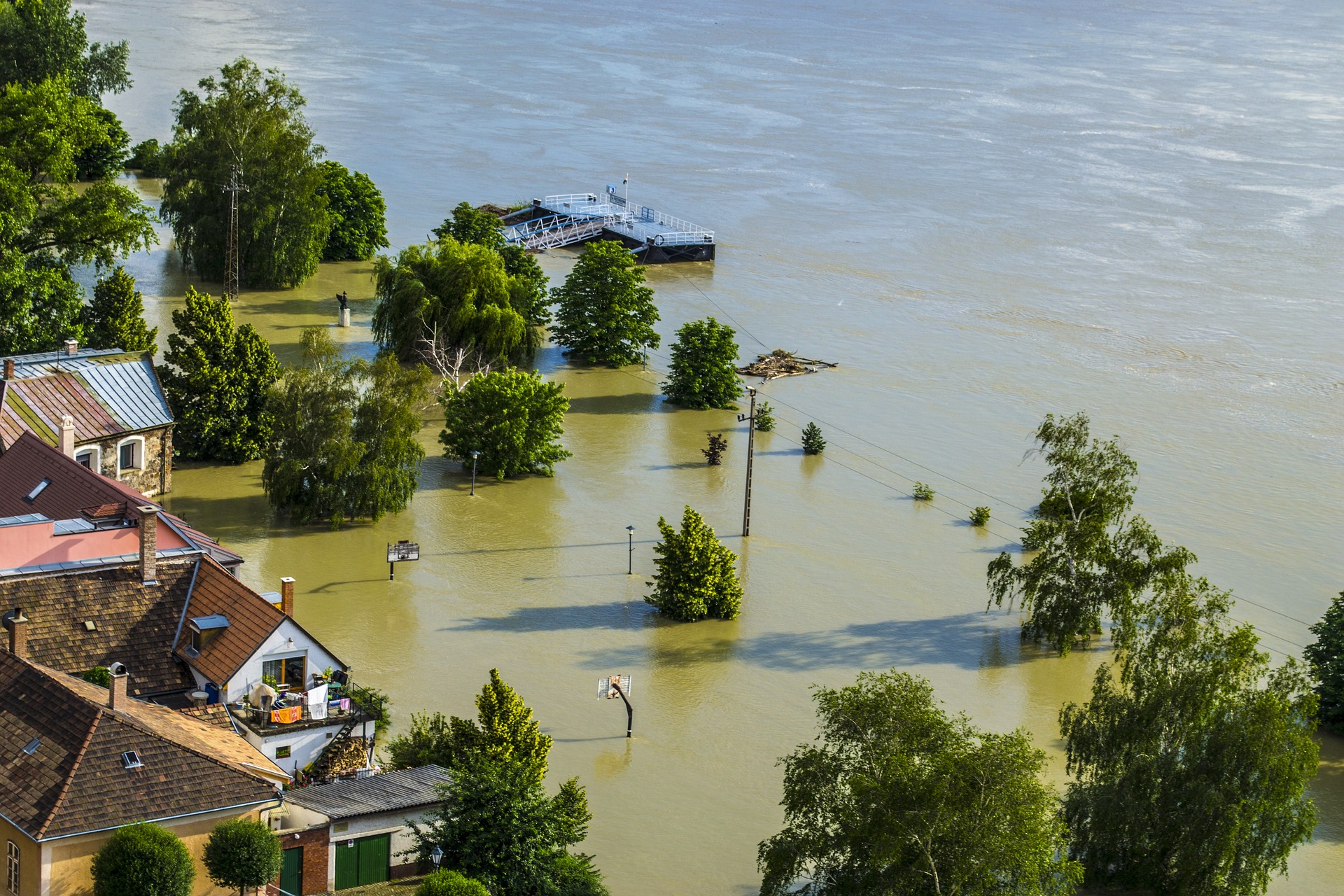
The implications of severe weather on local markets – Striking finding #5 is one that should elicit nods from many of you:
“Most Americans have experienced extreme weather in the past year.”
And the kicker is that majorities of both Democrats and Republicans agree that climate change is a factor.
The chart below tracks floods, intense storms, long periods of hot weather, droughts/water shortages, wildfire, and rising sea levels eroding beaches and shorelines – in local communities.
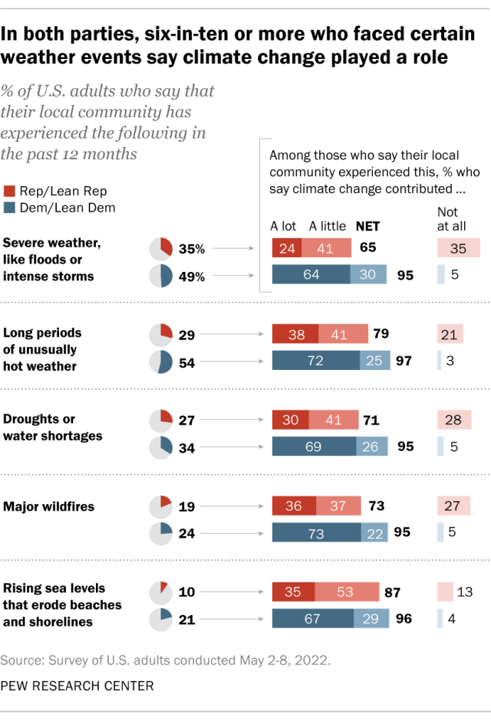
Of course, weather coverage in cities and regions is something radio traditionally does very well. Some of these topics lend themselves to content creation that might include podcasts, emergency coverage, and even promotions and even morning show bits that lean into these extreme conditions. It’s what people are talking about.
The Pew interviews took place in May. Based on the events of the summer and fall, we might expect these numbers would now run even higher. In fact, this story resonates with South Dakotans, where two towers fell yesterday due to an ice storm . That extreme weather story is here.

More teens are online every waking hour of their days – While this research finding may not be all that surprising, the details of this Pew research are striking.
Just a few years ago, in fact, only one in four U.S. teens said they were on the Internet “almost constantly.” This year, that percentage nearly doubled.
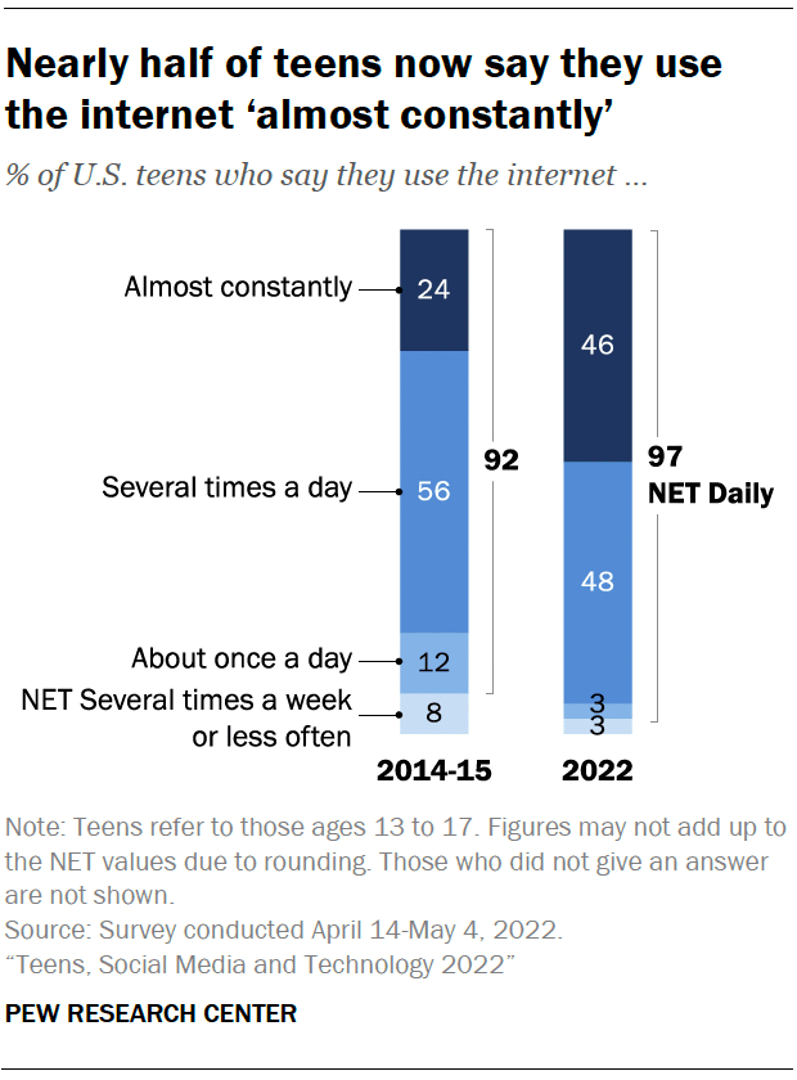
And here’s a nugget; Black and Hispanic teens are even more apt to be online than whites. Older teens report they’re using the Internet more than their younger counterparts, perhaps being driven by the fact the former is more apt to have their own smartphone.
While most radio stations don’t target Gen Z, of course, we know the generational usage patterns that have existed for more than a half century: the things teens are doing today, adults will be following their lead in the years to come.
Studying teen behavior is always an insightful way to get a handle on coming trends. Being online all the time may be one of them. Check your screen time data to gauge your own usage patterns. Chances are, they’re on the rise.
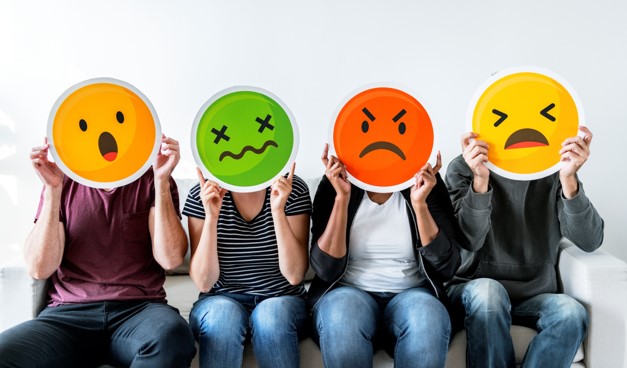
Around the world, social media is considered good for democracy – except in America – I know this “striking finding” woke Lori Lewis up this morning. Social media as a platform has taken on a different connotation in the States. Pew shows us the climate is truly darker and different here:
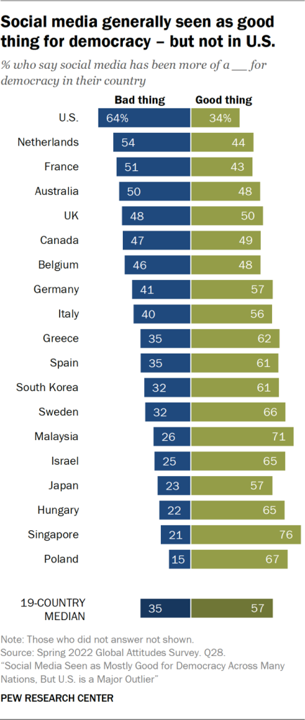
Here in the U.S., Pew respondents are quite a bit more likely to believe the Internet and social have driven a political wedge between us. Interestingly, Republicans are much more apt than Democrats to hold this belief.
Given that virtually ever radio station in the U.S. and around the world is engaged on various social media platforms, this is one of the most interesting pieces of data in the Pew Research compilation of “striking findings.” It’s from their Spring 2022 “Global Attitudes Survey.”
Given what’s going on at Twitter right now, this issue is very much salient.
We hope to have some “striking findings” of our own in early January with the launch Techsurvey 2023. For info and registration, go here.
Thanks to JacoBLOG reader Eric Chase for the heads-up on this Pew Research story.
- Media And Technology In 2025: Believe It Or Not! - April 18, 2025
- In Radio, You Just Never Know - April 17, 2025
- The Secret To Making A Great Podcast (And Great Radio) - April 16, 2025




15 excellent 👌 points and thanks.
Thank YOU for reading it, Tim.
I wonder if the US view of social media’s impact on politics is a product of US politicians using social media as a platform for reaching their constituents more than their counterparts in other parts of the world. Some politicians in the US are using social media to motivate their base and create their own bloc of “true-believers.” They have no interest in reaching compromises required to govern a nation as diverse as ours. Their object is re-election, not resolving issues important to the country.
It’s ugly out there, Brian. And the moment the midterm cycle ended, the “chattering class” has moved to the 2024 contest. At least those politicians are still buying radio.